The economy is, as President Trump noted in a tweet last week, “soooo good, perhaps the best in our country’s history.” With unemployment down, the Gross Domestic Product up, and income levels now matching those seen before the 2008 recession, it may be that the country has finally recovered.
But Americans in the latest Economist/YouGov Poll aren’t so sure. 38%, more than ever before, believe the country has recovered from the crisis, but more say either it hasn’t, never will, or aren’t sure.
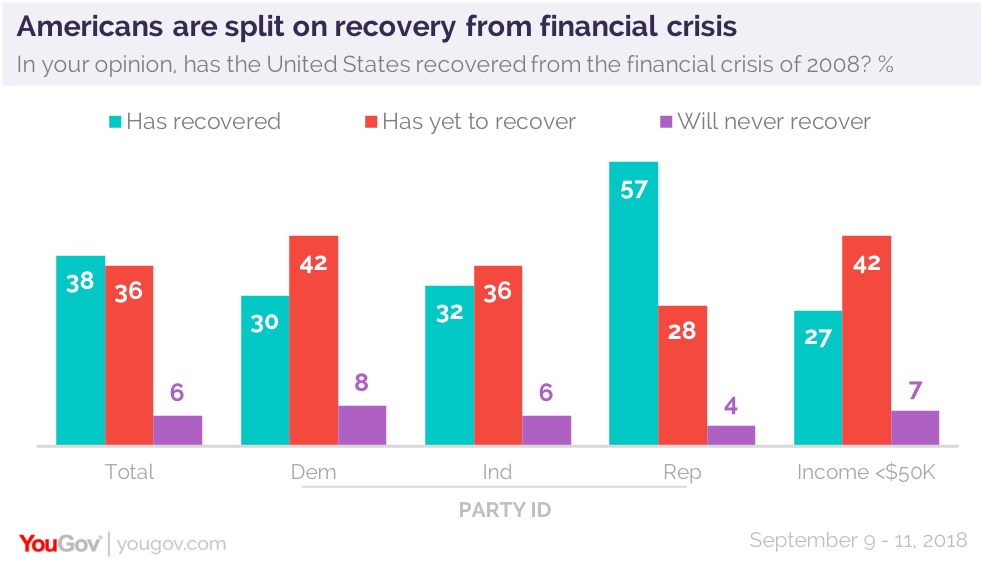
The partisan differences on this question are clear. Now, with a Republican in the White House, most Republicans believe the country has recovered from the Great Recession, while Democrats and independents are less sure. Two years ago, with Democrat Barack Obama in the White House, only 17% of Republicans thought the economy had recovered. There is also a financial impact on opinion. Both today and two years ago, those who are less well-off express more skepticism about a recovery.
Opinion about the state of the American economy is at its most positive since January, at the one-year anniversary of the President’s Inauguration, a high point in opinion of Donald Trump. 35% this week say the economy is getting better, while just 20%, lower than at any point in this Administration, think it is getting worse. Opinion is highly partisan (70% of Republicans say the economy is getting better, compared with just 17% of Democrats, many of whom see little change in either direction).
Americans expect a President to be able to do something about increasing the number of jobs, and they have believed this fairly consistently in the last few years. More Republicans than Democrats believe this today, though nearly half of Democrats also agree. Slightly more give President Trump the credit for today’s low unemployment numbers than give the credit to President Obama. A year ago, slightly more gave credit to President Obama.
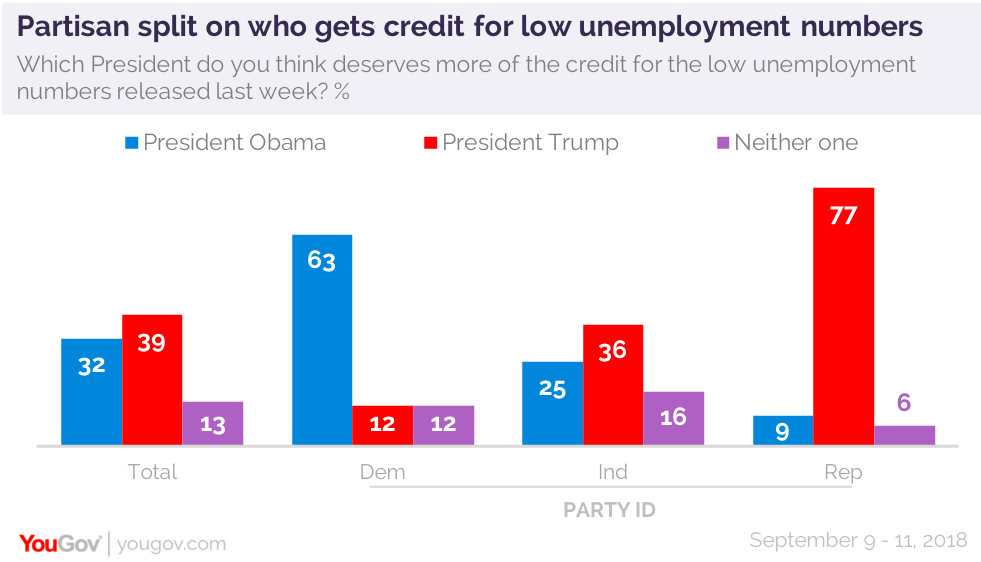
The good economic news is helping the President, coming at a time when other news about the Administration may not be as positive. His approval rating on handling the economy is at the highest since January, and is in marked contrast to his approval rating on other issues, like health care, taxes and immigration. Only his rating on handling terrorism is nearly as positive as his scores on the economy.
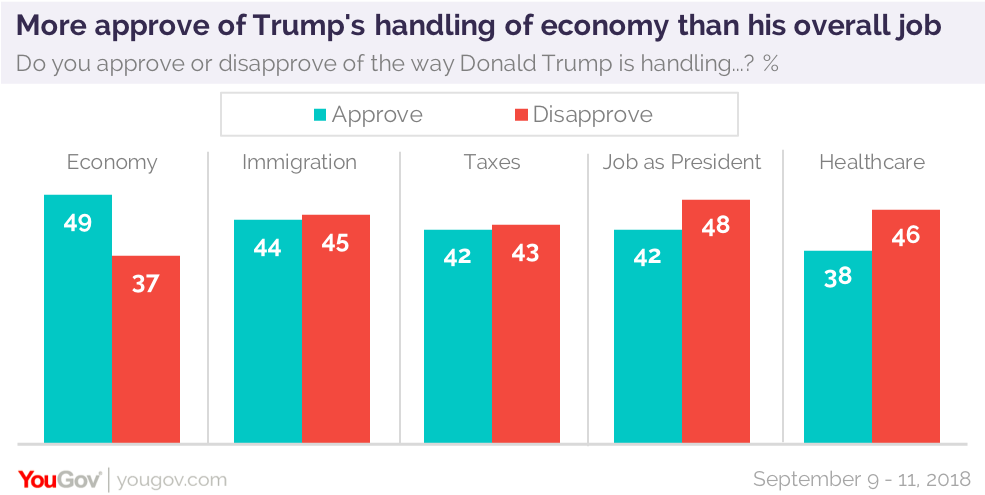
The President’s overall approval rating is up from a week ago. But it remains just about 40%, and has stayed in the narrow band around 40% for months.
One in three regard the unemployment rate as the “best” measure of how the national economy is doing – more than think that about prices, about the stock market, or even about their own personal finances. Just about the same percentage believe the jobless rate does a “good” or “very good” job of explaining the national economy.
Despite the good news about jobs, unemployment is still perceived as at least a somewhat serious problem for the country. Fewer see it is a problem locally, though Democrats are more likely than Republicans to report it as a serious problem both locally and in the country overall.
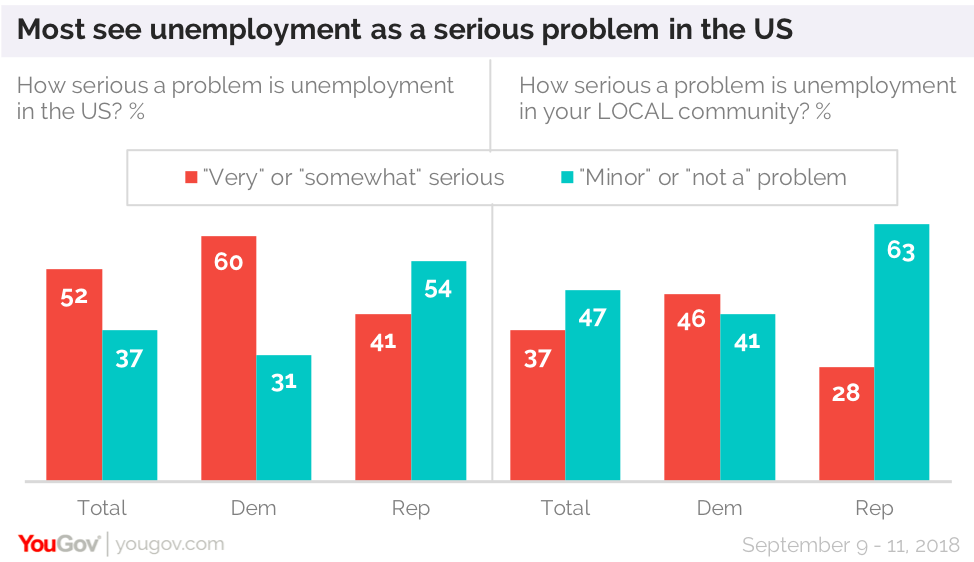
One thing that has changed since President Trump’s Inauguration is the perception of how news about the economy is being reported. Twice as many today say they have heard mostly positive news about the state of the economy as say they have heard mostly negative news. That has been the case when the question has been asked in Economist/YouGov polls during the Trump Administration. Evaluation of economic news stories when Barack Obama was President was different: more claimed to have heard mostly negative news than to say the opposite. Much of the change is due to movement among Republicans: in July 2016 nearly half of Republicans (47%) said they had heard mostly negative economic news stories; in this week’s poll, 54% say they have heard mostly positive news.
Still, few report good news when it comes to their family finances. Nearly as many report their family’s finances have gotten worse in the last year as believe they have gotten better. Even more report no change.
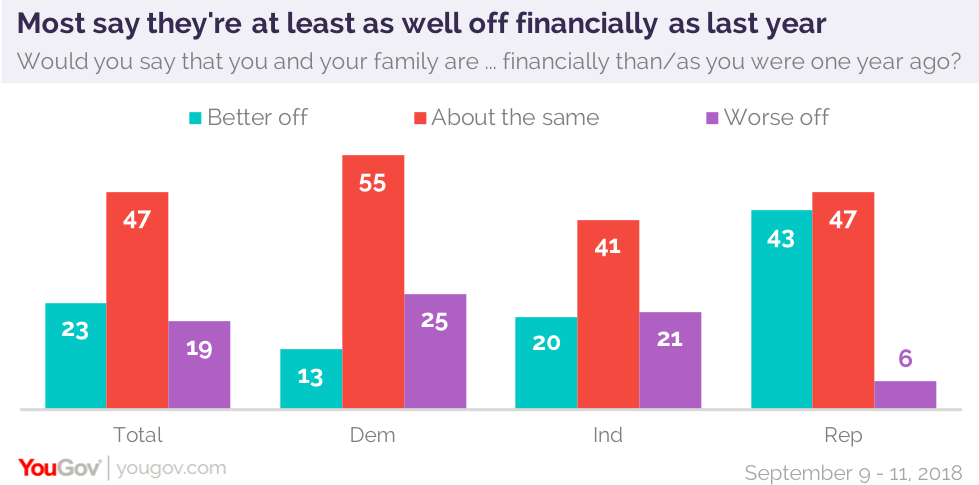
This is a matter of both politics and income. More than a third of those with family incomes above $100,000 say their finances have improved over the last year, twice as many as the share of those earning less than $50,000 who say this.







